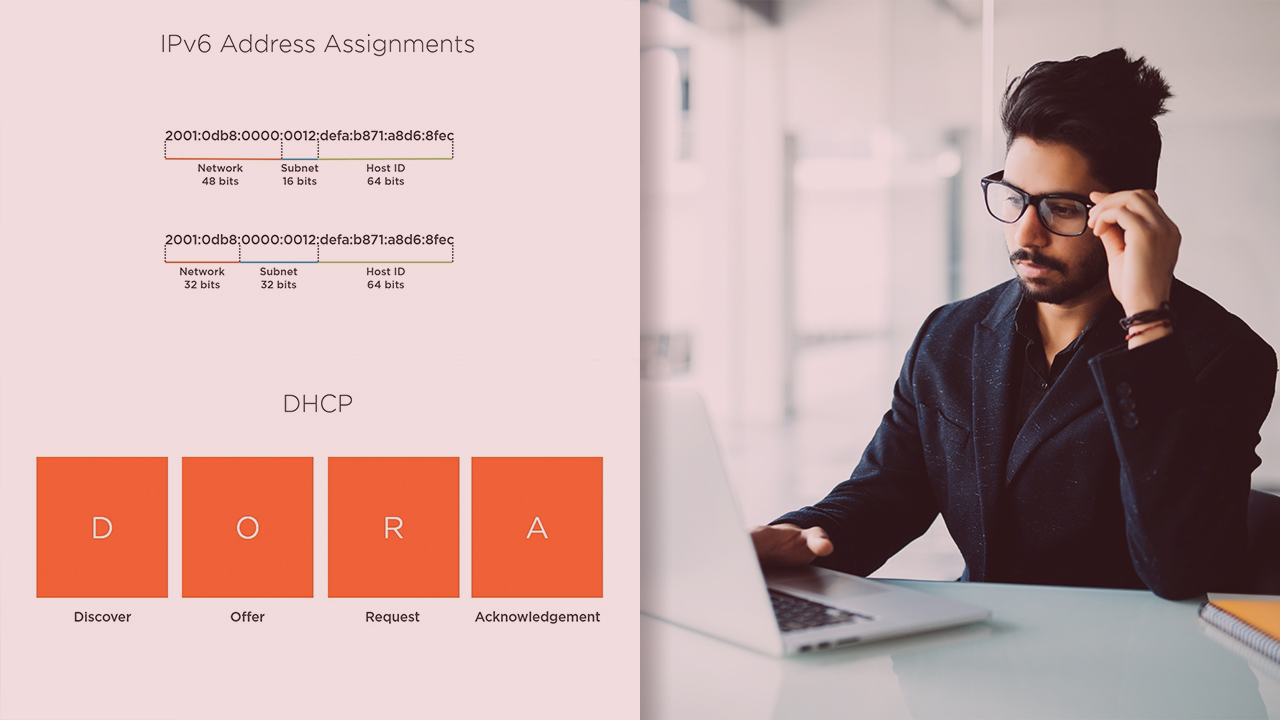- Course
Designing Cisco Enterprise Networks: IPv4 and IPv6 Addressing Design
This course will teach you several of the different skills that are required to develop an IPv4 and IPv6 addressing plan.

- Course
Designing Cisco Enterprise Networks: IPv4 and IPv6 Addressing Design
This course will teach you several of the different skills that are required to develop an IPv4 and IPv6 addressing plan.
Get started today
Access this course and other top-rated tech content with one of our business plans.
Try this course for free
Access this course and other top-rated tech content with one of our individual plans.
This course is included in the libraries shown below:
- Core Tech
What you'll learn
Many engineers work their whole careers without ever really looking under the hood to understand why a network was designed the way it was. Some of this is because their day to day duties don't require this knowledge, and some of this is because an engineer chooses to focus their knowledge on becoming exceptional operational engineers. In this course, Designing Cisco Enterprise Networks: IPv4 and IPv6 Addressing Design, you'll take a look at many of the different skills that are required to develop an IPv4 and IPv6 addressing plan. First, you'll discover several of the different fundamental concepts that are required to understand IPv4 and IPV6 addressing including binary math, masks, classes, subnetting, and CIDR. Next, you'll focus in on the IPv4 addressing plan, specifically the questions that must be asked and what to look for, common addressing standards, and a discussion about design hierarchy. Finally, you'll take a look at how these concepts can be applied in a demonstration using the Globomantics network. By the end of this course, you'll have a firm base understanding of IPv4 and IPv6 addressing and addressing planning, as well as the knowledge of the common important services that are often implemented along with an addressing plan.

